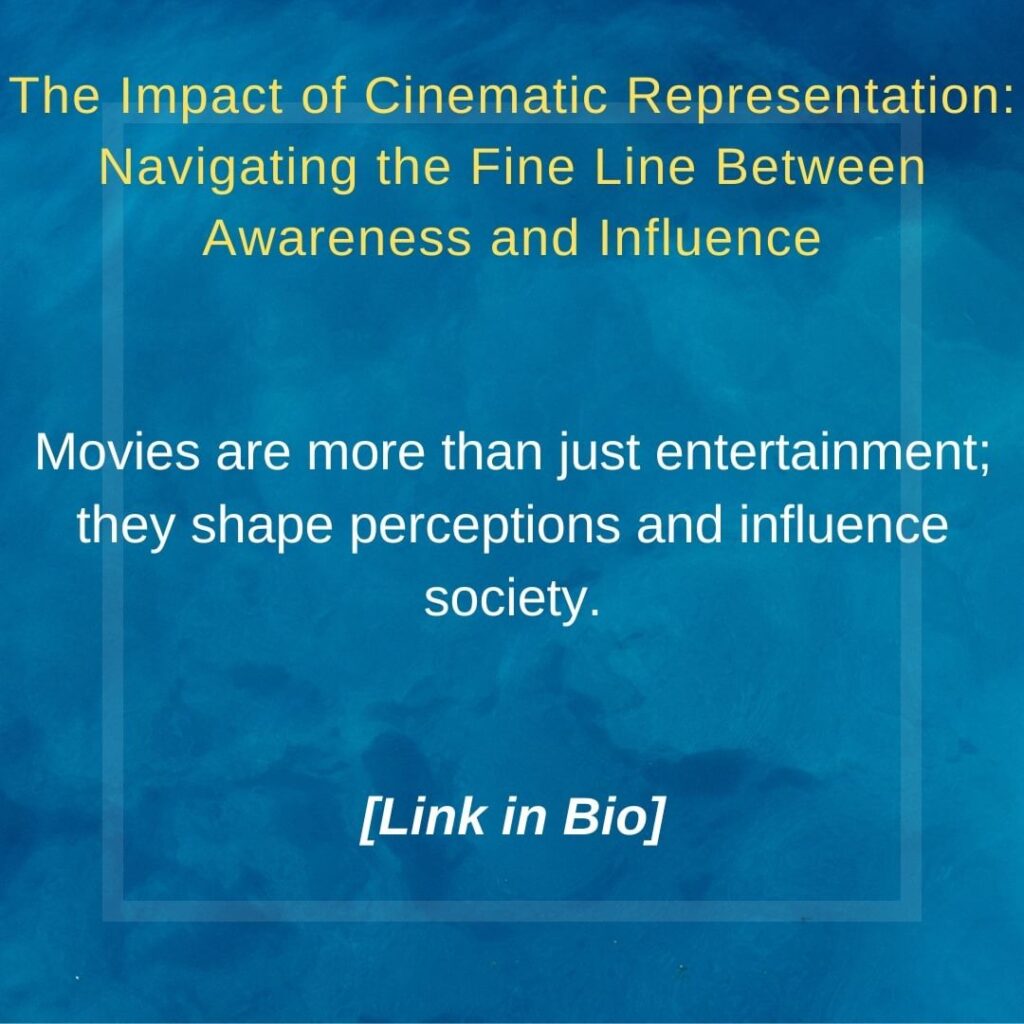Movies, as a powerful medium of storytelling, have the ability to shape perceptions, evoke emotions, and reflect societal realities. However, a growing concern arises when the portrayal of negative behaviors in films goes beyond awareness and inadvertently influences the audience in undesirable ways. In this blog, “movies impact” I want to explore the delicate balance between raising awareness and inadvertently glorifying harmful actions, particularly in scenes depicting crime, violence, and conflict.that is actually movies impact on innocent minds.
Movies Impact: The Dilemma of Cinematic Realism:
While the depiction of societal issues in films can be a tool for awareness, the thin line between realism and glorification often becomes blurred. Scenes showcasing criminal activities, murder, and revenge, when portrayed in a ‘cool’ or sensationalized manner, risk normalizing and glamorizing negative behavior.
The Influence of Cinematic Storytelling:
1. Rap Scenes:
Rap scenes in movies often depict a glamorous and rebellious lifestyle, inadvertently glamorizing anti-social behavior. Instead of promoting creativity and expression, they may inadvertently encourage criminal tendencies.
2. Murder Scenes:
Detailed murder scenes, when presented artistically, might unintentionally offer a tutorial for those with criminal tendencies. The boundary between fiction and reality becomes increasingly porous, potentially influencing vulnerable minds.
Shifting the Narrative:
Rather than perpetuating negative behavior, films have the potential to shift the narrative towards positive resolutions and constructive problem-solving.
1. Communication Over Confrontation:
Movies can emphasize the power of communication and dialogue over confrontation. Scenes depicting healthy discussions and conflict resolution can inspire viewers to adopt positive psychology in their own lives.
2. Realism with Responsibility:
Filmmakers can embrace realism without compromising social responsibility. Highlighting the consequences of negative actions rather than glorifying them can contribute to a more balanced and socially conscious portrayal.
The Role of Positive Storytelling:
1. Inspiring Positive Imitation:
Encouraging positive behaviors in films can inspire positive imitation in real life. Scenes portraying characters resolving conflicts through understanding and empathy send a powerful message about the effectiveness of constructive dialogue.
2. Educating Through Entertainment:
Films can be a source of education through entertainment, promoting messages of tolerance, empathy, and the importance of non-violent conflict resolution.
Guiding Cinematic Narratives for Positive Change: Society’s Role in Managing Movies Impact
In the realm of cinematic representation, the responsibility lies not just with filmmakers but with society as a whole. While movies can serve as a mirror reflecting the complexities of human nature, there is an ethical responsibility to guide the narrative towards positive change. By promoting awareness without inadvertently glorifying negative actions, films can contribute to a society that values communication, empathy, and the transformative power of positive psychology.
Helping Your Child Make Better Choices:
Ensuring that your child understands the impact of media, including movies, on their perceptions and behaviors is crucial for their development. Explore strategies to guide your child in making better choices and navigating the influence of movies responsibly. Learn more »
Do Follow for More Tips and Inspiration:
- Instagram: Follow us on Instagram
- Pinterest: Follow our Pinterest profile
FAQs regarding movies impact
- How do movies influence our perceptions and behaviors?
- Movies can shape our beliefs, attitudes, and behaviors by portraying certain ideologies, lifestyles, and social norms.
- What are the potential effects of exposure to violent or negative content in films?
- Exposure to violent or negative content in movies can desensitize individuals to real-world violence, increase aggression, and normalize harmful behaviors.
- Can watching movies with positive themes have a beneficial impact on viewers?
- Yes, movies with positive themes can inspire empathy, promote social awareness, and encourage personal growth and development.
- How can parents or caregivers mitigate the negative effects of movie watching on children?
- Parents can monitor the content their children watch, engage in discussions about the messages portrayed in movies, and provide context and guidance to help children understand the difference between fiction and reality.
- What role does censorship or content regulation play in managing the impact of movies on society?
- Censorship and content regulation aim to restrict access to potentially harmful or inappropriate content and protect vulnerable audiences, such as children and adolescents, from negative influences.
- Are there any initiatives or campaigns aimed at promoting positive portrayals and messages in movies?
- Yes, various organizations and advocacy groups advocate for responsible filmmaking practices, promote diversity and inclusion in cinema, and raise awareness about the impact of media on society.
- How can individuals contribute to creating a more responsible and positive movie-watching culture?
- Individuals can support filmmakers and content creators who prioritize ethical storytelling and positive messages, engage in critical media consumption, and advocate for media literacy education in schools and communities.
